The Worst DCEU Movie Isn’t Suicide Squad
The DC universe is getting a second stab at the silver screen under the watchful eye of James Gunn, and if The Suicide Squad, Creature Commandos, and Superman are any indication, the future is looking bright.
So, with the DCU in full effect, it’s time to start doing a post-mortem of the DC Extended Universe as it will go down in history. And it’s time to take a closer look at which film in this uneven but intriguing studio experiment should be remembered as the absolute worst. And while I know most viewers are already sure of their choice, I’m here to tell you the one that’s the real stain on this DC fan’s report card.
I’m Drew Dietsch for Giant Freakin Robot and it’s time to declare why the worst DC Extended Universe movie is Batman v Superman: Dawn of Justice.
The Worst DCEU Movie
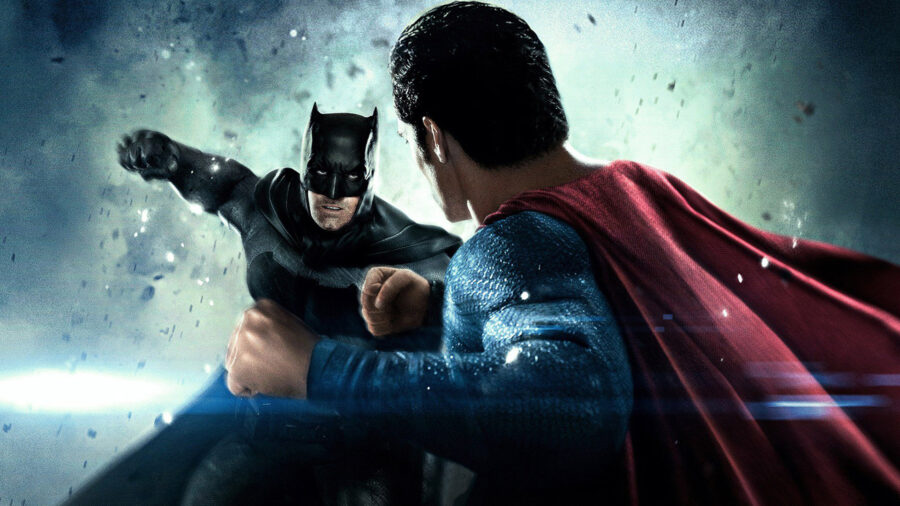
Batman v Superman: Dawn of Justice is possibly the most divisive entry in the entire DC Extended Universe. With director Zack Snyder taking inspiration from Frank Miller’s seminal The Dark Knight Returns comic, the establishment of this version of Batman and the further expansion of the DC cinematic characters was a mission statement for how the DC extended universe would be moving forward.
And the groundwork Batman v Superman: Dawn of Justice laid was a clear misfire. The DCEU films moved away from the specificity of this movie’s tone and approach, and the results have been far more critically well-received.
But, even if we look at Batman v Superman: Dawn of Justice on its own terms and separate it from the larger DCEU framework, it still fails on so many crucial levels. And though Suicide Squad holds the lowest critical Rotten Tomatoes score of the DCEU, Zack Snyder’s versus film is right behind it. It’s time to close that gap.
Let’s look at exactly why Batman v Superman: Dawn of Justice is the worst film in the entire DC Extended Universe canon.
Deconstructing Before Constructing
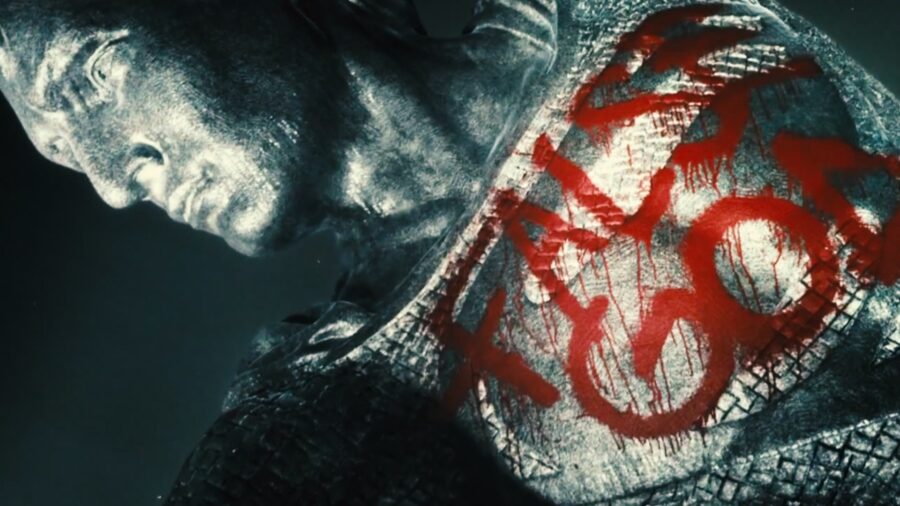
Batman v Superman: Dawn of Justice comes from the same mindset that gave us seminal works of superhero comic book fiction like Watchmen and The Dark Knight Returns. These stories were looking at the decades-old history of superhero characters and using that legacy to pick apart a lot of what readers thought about when it came to how superheroes and masked vigilantes were portrayed. That mindset on its own is neither bad nor good, but its point of purpose comes from the idea that certain characters have a deep and well-developed history that informs how the work is deconstructing them.
Batman v Superman: Dawn of Justice wants to operate from this same position of dismantling a perceived status quo when it comes to how superheroes are viewed, but that is a mission statement that’s fundamentally flawed due to the fact that this is a movie that is still introducing us to these iterations of these characters. You can’t tear down the foundations of these characters to reveal a more complicated truth to them as icons before you’ve even given them the chance to stake their own claim.
Granted, this iteration of Superman had been established in the previous film, Man of Steel, but to build him up only to tear him down in the next movie seems cruel and short-sighted.
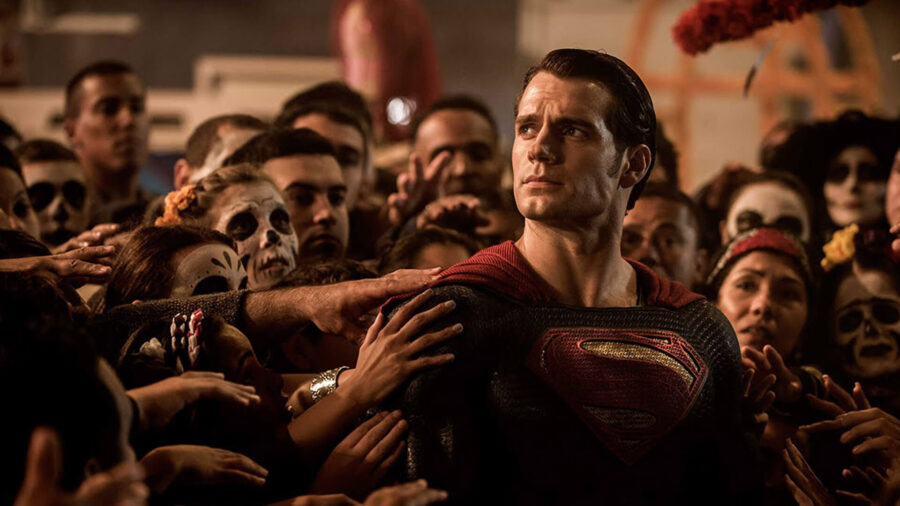
This air of deconstruction also ties into the overall tone of Batman v Superman: Dawn of Justice. Zack Snyder is clearly interested in infusing a grimmer mood and spirit into his takes on superheroes. He seems to believe that this is the best approach to take when it comes to executing a deconstruction of superheroes. While it’s certainly proven to work in other projects, the reason it feels overbearing and excessive in Batman v Superman: Dawn of Justice is because that tone hasn’t been earned over the course of a larger story and universe. And what’s doubly bizarre is that this is a film that wants to celebrate heroes while also dissecting them like their on medical display.
Still, it’s worth arguing that characters like Batman and Superman have such an ingrained pop culture footprint that deconstructing them in a brand new iteration is acceptable. Maybe there was a way to achieve that in this film. But, there are so many other problems that compound any goals Batman v Superman: Dawn of Justice is trying to accomplish.
An Assault of Filmmaking Excess
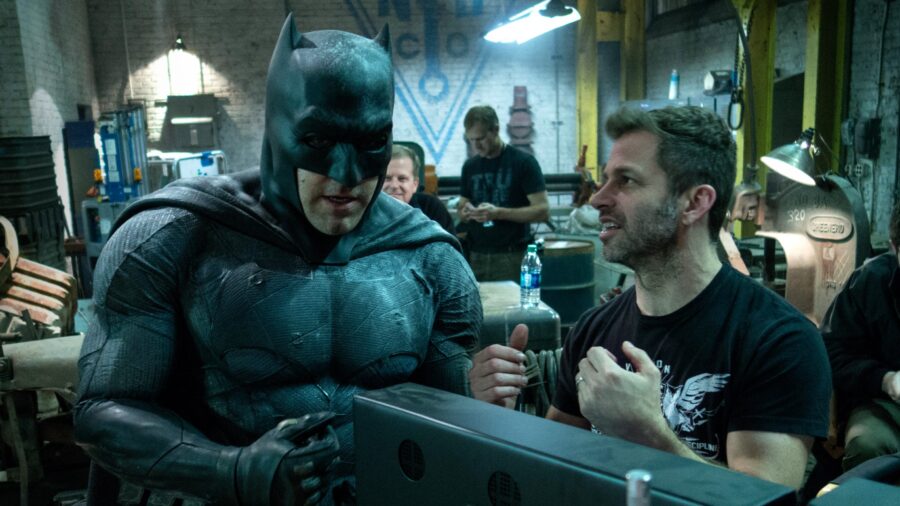
It’s important to establish some context when it comes to this criticism of Batman v Superman: Dawn of Justice. That can only be done by tracking the filmography of director Zack Snyder.
By the time Batman v Superman: Dawn of Justice came around, Snyder had established a very particular visual style and look to his films. His adherence to near-monochromatic or muted color tones and a sense of dynamic fluidity to action scenes became a marker for his directing approach. While certain tricks he’d leaned on in previous films – particularly speed ramping – had been retired by this point, Snyder was still committed to making material fit his particular filmmaking desires.
At that point in his career, Snyder had been getting increasingly higher budgets for his films. When Batman v Superman: Dawn of Justice hit his plate, Snyder was working with the biggest budget of his career (the reported budget runs anywhere from $250 million to $300 million). If you view the amount of money a studio is willing to give you as an indication in their confidence towards your abilities, this had to be a gargantuan ego boost to Snyder and further vindication towards how he wants to tell these stories.
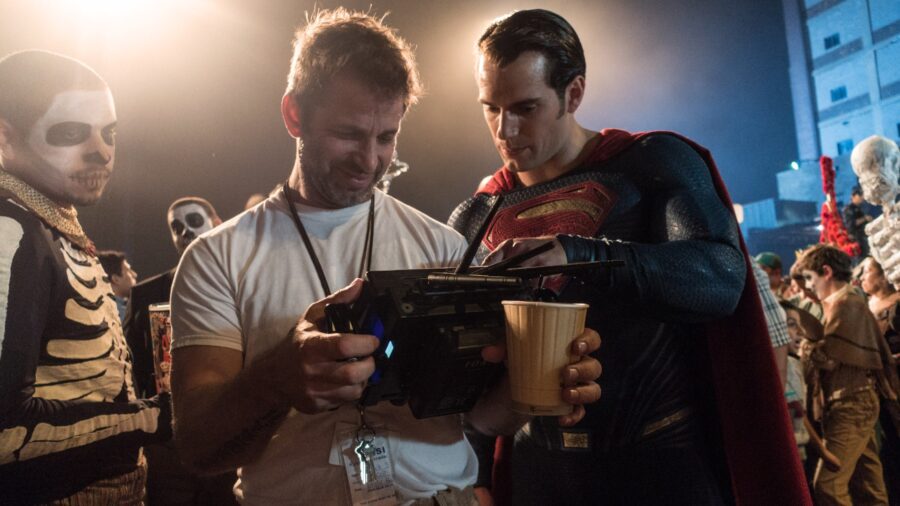
Because of all this, Batman v Superman: Dawn of Justice ends up as Snyder’s most ambitious and extravagant filmmaking exercise before the entire Justice League saga. Sucker Punch is his most personally indulgent film, but when it comes to technical and filmmaking excess, it doesn’t hold a candle to the exorbitant nature of this flick. The scale of destruction, the unhinged violence, and the cavalier attitude towards physical momentum in an action scene have all been dialed up to eleven. It’s an onslaught in both visual and audio form that wants to pound the audience into submission.
What’s surprising is that a lot of Batman v Superman: Dawn of Justice isn’t that interesting from a filmmaking standpoint. So much of the movie is shot in flat close-ups, sometimes eschewing establishing shots and jumping right into the characters and their conversations. For someone who seems to think visual darkness equates to a strong sense of atmosphere, Snyder isn’t particularly adept at creating mood.
That doesn’t mean Batman v Superman: Dawn of Justice is without tone.
But, man, let’s talk TONE.
A Tonal Misery
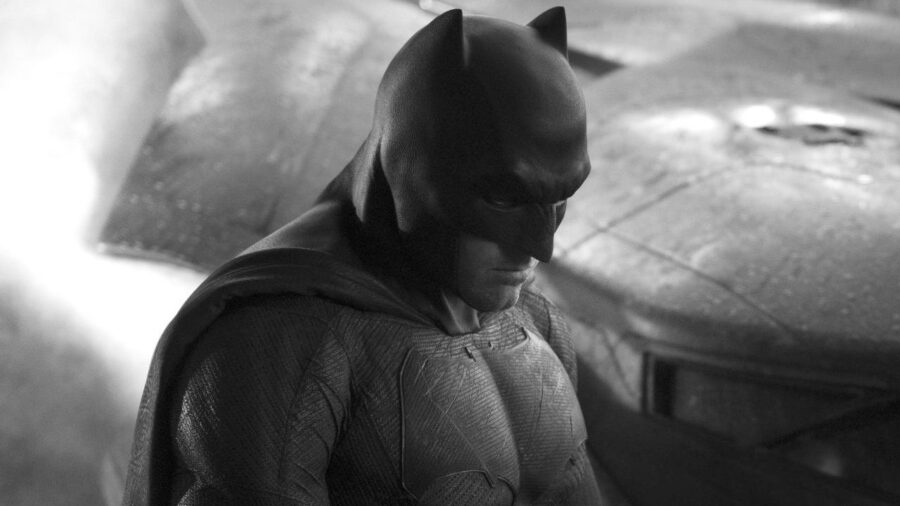
It’s a widespread complaint with Zack Snyder’s filmography and Batman v Superman: Dawn of Justice in particular: his stuff is dour in the extreme. It’s not that superhero stories all have to be bright and chipper – DC’s show Doom Patrol is incredibly dark and strange but knows how to balance that with an overall sense of humor and hope – but Snyder’s films feel like they are punishing the audience to a point that it almost becomes unintentional self-parody.
In this way, Batman v Superman: Dawn of Justice is like another superhero film: The Passion of the Christ. Yes, Jesus is a figure whose stories have inspired countless iterations of superheroes, including Superman. But, much like Mel Gibson’s film seemed to find the most value in the over-the-top torture Christ experienced, Snyder seems to relish in the most morose, surly, and sullen aspects of these characters. Take any of the infamous lines of dialogue from the movie and you can see just how uber-serious this movie takes itself.
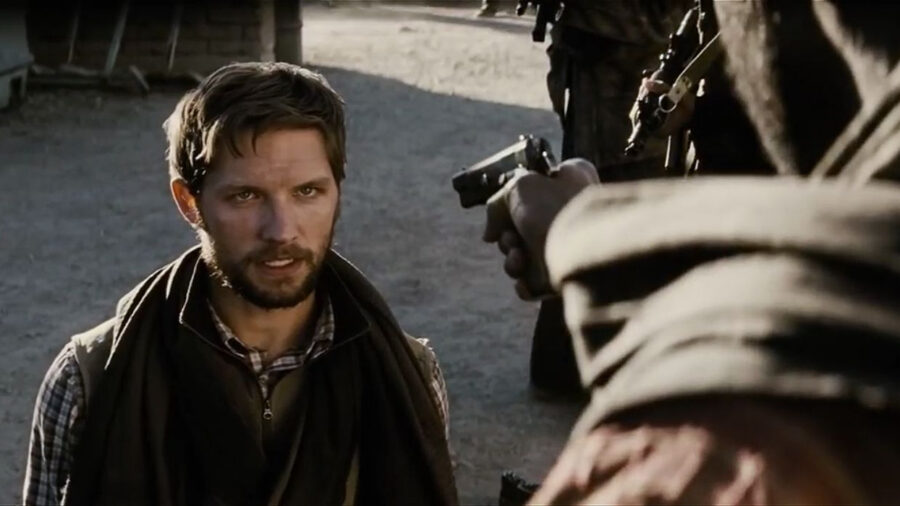
Or, look at something from the film that Snyder has framed in the past as a joke. An unnamed CIA operative is brutally executed by terrorists at the beginning of the film. That character is actually Jimmy Olsen, a longtime staple of the Superman cast of characters. According to Snyder, quote, “We just did it as this little aside because we had been tracking where we thought the movies were gonna go, and we don’t have room for Jimmy Olsen in our big pantheon of characters, but we can have fun with him, right?”
If you need confirmation for what Snyder’s idea of fun is, look no further than that.
What’s doubly disappointing about all this “fun” is that it ends up hurting the cast. Batman v Superman: Dawn of Justice actually has a really good stable of actors. Ben Affleck is a welcome addition as Bruce Wayne/Batman, Henry Cavill proved he could exhibit the traits of a great Clark Kent/Superman in Man of Steel, Gal Gadot made the character work in the first Wonder Woman, and even Jesse Eisenberg’s manic take on Lex Luthor isn’t without total merit. The problem is that they are all saddled with grumble-gruff attitudes and lofty dialogue that has the veneer of complexity.
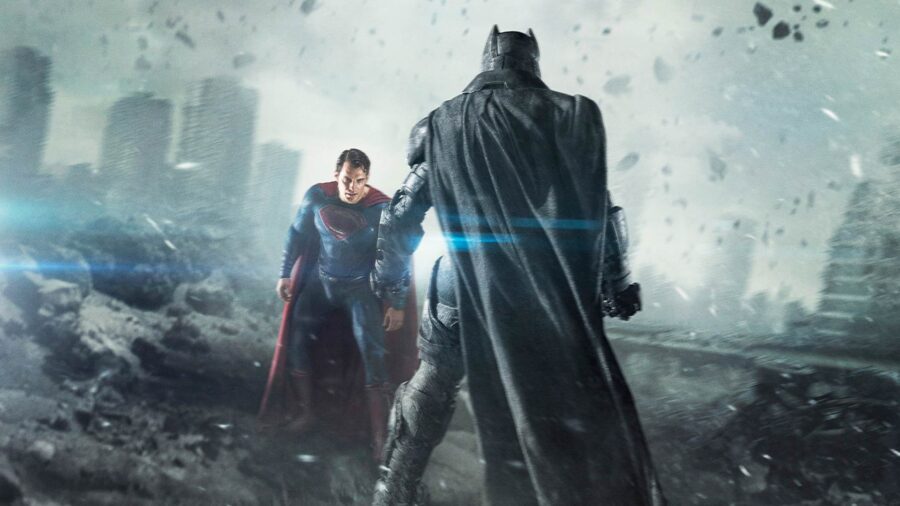
And all this po-faced, gormless Sturm und Drang culminates in the titular showdown between the two heroes, and it’s an utter laugh riot. The hyper-seriousness that has permeated every minute of the film climaxes with a brawl that should be an emotionally tense sequence, but when you’ve been assaulting the audience with bleakness and grimacing for nearly two hours, seeing two grown men in silly costumes punch each other with freight train fists and toss each other around like ragdolls is just funny. It’s a tonal misfire in every way, culminating with the now ignominious, “Martha!” moment that acts as a period on this unintentionally comedic smackdown.
Also, I’d be remiss if I didn’t remind everyone that a jar of urine labeled, “Granny’s peach tea,” is used for a moment of high tension and dread. Just to better illustrate the tonal issues at play in Batman v Superman: Dawn of Justice.
There are a number of other elements that I could pick apart when it comes to Batman v Superman: Dawn of Justice – the lack of connectivity between scenes, poor pacing, Batman being a mass murderer, the aggro score by Hans Zimmer and Junkie XL – but I know one question is hanging in the air, so let’s get to it.
Why Batman v Superman and Not Suicide Squad?
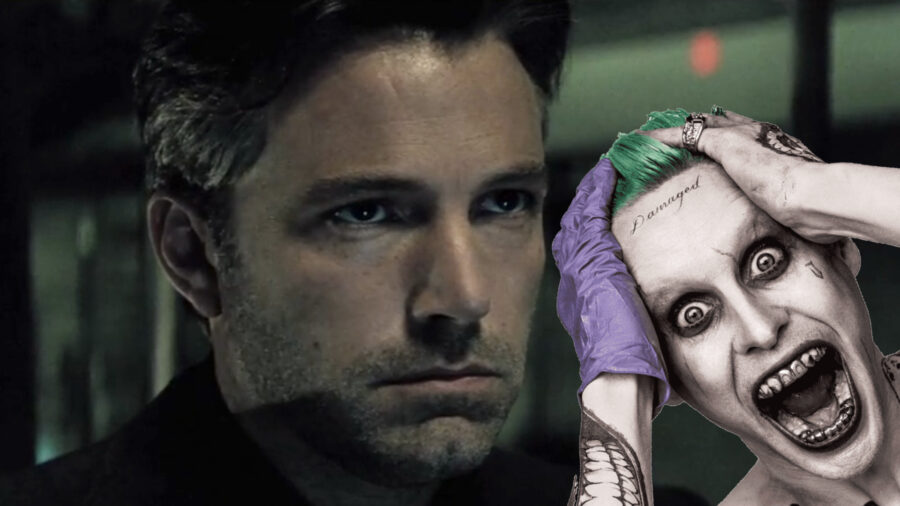
If you ask most people what the worst DCEU movie is, chances are you’ll hear them say Suicide Squad. We’ve already shown Rotten Tomatoes would back them up; it has the lowest critical and audience score of any DC Extended Universe film on Rotten Tomatoes.
But, Suicide Squad has one thing, ONE thing going for it that Batman v Superman: Dawn of Justice doesn’t: Suicide Squad isn’t afraid to have a little fun. And not the kind of fun that involves brutally murdering a character. Batman v Superman: Dawn of Justice is done in by its sense of self-importance. The weight that it puts on itself ends up being a millstone around its neck. While Suicide Squad certainly has its issues, it has the benefit of being a slighter experience and therefore a less impactful one.
I believe the narrative of studio tampering is a big factor when it comes to pitting Batman v Superman: Dawn of Justice and Suicide Squad against each other. It was widely publicized that Suicide Squad was heavily re-edited and re-configured to be a more jovial experience after the critical backlash to Snyder’s ode to bombast. In this way, it’s perceived that Snyder got to make the film he wanted – he was even granted an alternate R-rated cut when the film hit home video – whereas Suicide Squad was a Frankenstein’s monster of what the studio wanted rather than what writer/director David Ayer had envisioned.
I have a lot more thoughts about Suicide Squad and maybe we’ll do a video on them if y’all really want to hear them, let us know in the comments, but suffice to say that I’ll take a somewhat fascinating and loose mess of a movie over the relentless dreary aggression of Batman v Superman: Dawn of Justice.
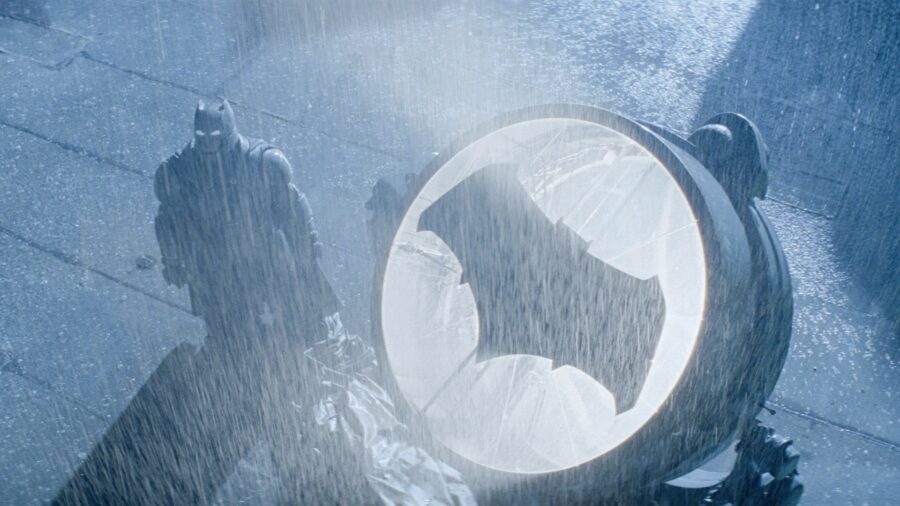
Time just hasn’t been kind to Batman v Superman: Dawn of Justice. I’m glad the DCEU changed course away from this kind of movie because their films did benefit from a better variety of tone. As it stands, this was the pinnacle of a certain direction for the DC films and it also should act as its endpoint. The world never needs another Batman v Superman: Dawn of Justice.
Ready to argue why I’m wrong? Got a better argument for another DCEU entry? Throw your Kryptonite spears in the comments and if you’d like more videos like this, give the channel a subscription and maybe we’ll be able to pick apart other comic book movie catastrophes. Thanks for watching and we won’t say “Martha” at all next time here on Giant Freakin Robot.

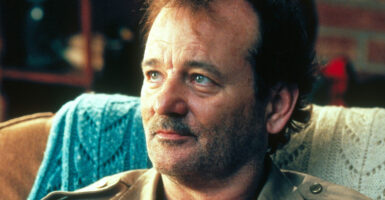









Login with Google